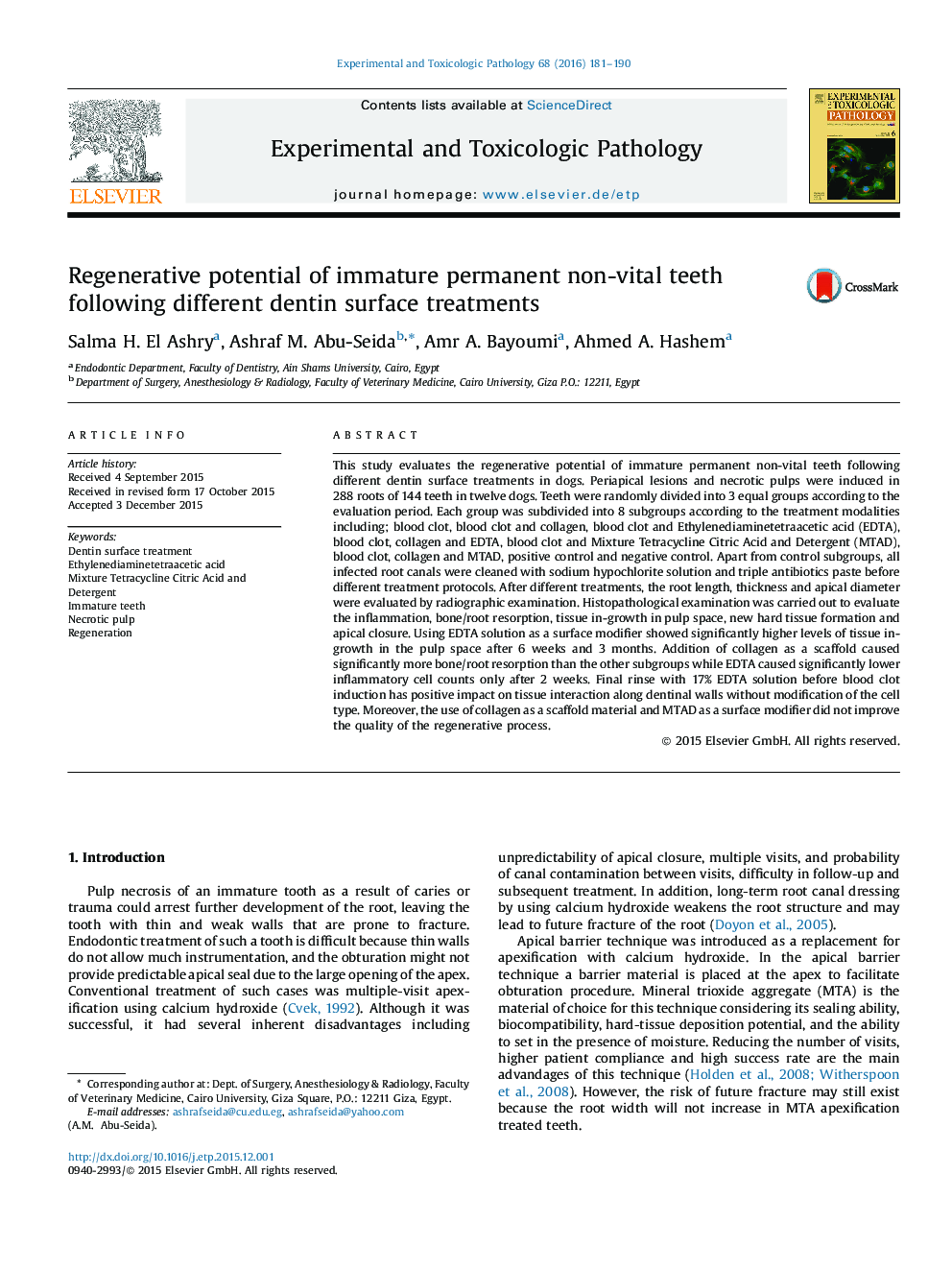| Article ID | Journal | Published Year | Pages | File Type |
|---|---|---|---|---|
| 2498800 | Experimental and Toxicologic Pathology | 2016 | 10 Pages |
ABSTRACTThis study evaluates the regenerative potential of immature permanent non-vital teeth following different dentin surface treatments in dogs. Periapical lesions and necrotic pulps were induced in 288 roots of 144 teeth in twelve dogs. Teeth were randomly divided into 3 equal groups according to the evaluation period. Each group was subdivided into 8 subgroups according to the treatment modalities including; blood clot, blood clot and collagen, blood clot and Ethylenediaminetetraacetic acid (EDTA), blood clot, collagen and EDTA, blood clot and Mixture Tetracycline Citric Acid and Detergent (MTAD), blood clot, collagen and MTAD, positive control and negative control. Apart from control subgroups, all infected root canals were cleaned with sodium hypochlorite solution and triple antibiotics paste before different treatment protocols. After different treatments, the root length, thickness and apical diameter were evaluated by radiographic examination. Histopathological examination was carried out to evaluate the inflammation, bone/root resorption, tissue in-growth in pulp space, new hard tissue formation and apical closure. Using EDTA solution as a surface modifier showed significantly higher levels of tissue in-growth in the pulp space after 6 weeks and 3 months. Addition of collagen as a scaffold caused significantly more bone/root resorption than the other subgroups while EDTA caused significantly lower inflammatory cell counts only after 2 weeks. Final rinse with 17% EDTA solution before blood clot induction has positive impact on tissue interaction along dentinal walls without modification of the cell type. Moreover, the use of collagen as a scaffold material and MTAD as a surface modifier did not improve the quality of the regenerative process.
